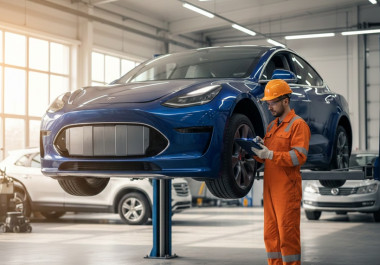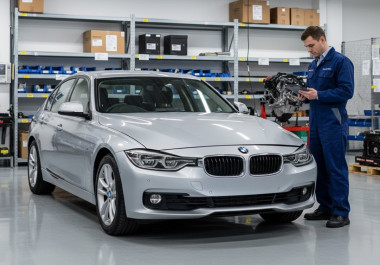Auctions and Their Role in the Market
Step into any auction hall or scroll through an online bidding platform and you’ll notice one thing immediately – pace. Cars come and go in minutes. A hammer drops, a new owner emerges, and the market shifts quietly in the background.
What many don’t realise is that car auctions are one of the driving forces behind the UK’s used car market. They dictate supply, influence pricing, and shape how dealers and private buyers value vehicles on forecourts. Even if you’ve never lifted a paddle, the chances are your last used car purchase was affected by auction results somewhere along the line.
Explore current opportunities at RAW2K Vehicle Auctions.
Why Dealers Depend on Auctions
Stock at Speed
Dealerships thrive on turnover. The quicker they shift stock, the healthier their bottom line looks. Auctions provide them with fast access to:
-
Ex-fleet vehicles with known histories
-
Trade-ins cleared out by finance companies
-
Salvage cars that can be repaired and resold
-
Everyday hatchbacks to keep forecourts full
Compared with waiting weeks for a private seller, auctions let them refresh their stock in days.
Setting Benchmarks for Pricing
Every bid sets a precedent. If a batch of Ford Focuses sells for £3,000 each at auction, local dealers will adjust their forecourt prices accordingly. Those hammer prices become informal benchmarks, rippling through the wider market.
That’s why auctions are sometimes called the “thermometers” of the motor trade. They don’t just provide stock – they measure what buyers are truly willing to pay.
How Auction Prices Shape the Used Market
Real-Time Demand Signals
Auction data is like a live feed of the market’s mood. When demand is high, prices rise quickly. When supply floods in, prices soften.
For example:
-
High demand: A well-kept Volkswagen Golf with full service history might push hammer prices up, nudging forecourt values higher.
-
Low demand: A wave of ex-lease hatchbacks landing at once could saturate the market, forcing second-hand prices down.
This cycle happens weekly, sometimes daily, and feeds directly into dealer pricing strategies.
The Salvage Factor
Salvage vehicles also play a role. Category S or N cars enter auctions with lower reserves, often snapped up by traders who repair them. Once fixed, they re-enter the market as cheaper alternatives to clean-title cars.
Without auctions, many of these vehicles would go straight to scrap. Instead, they inject affordable options into the used market – appealing to buyers who don’t mind a project.
Get a valuation or explore options to Scrap Your Car.
Bulk Purchases and Their Market Effects
Fleet Clear-Outs
When a corporate fleet retires dozens of vehicles at once, auctions provide the channel. Imagine 40 identical Vauxhall Astras hitting the block on the same day.
-
Supply surge drives hammer prices lower.
-
Dealers scoop them up cheaply.
-
Local markets see a wave of near-identical used cars.
For a while, that abundance softens second-hand values until the supply thins.
Regional Pricing Fluctuations
This effect isn’t always national. A bulk sale in the Midlands might temporarily depress values in that region, while London or the South East remains unaffected. It’s one of the reasons used car prices vary so much geographically.
Auctions as the Dealer’s Safety Net
From my years in the trade, I can tell you that auctions aren’t just about bargains. They’re also a safety net for dealers.
Let’s say a dealer overestimates a car’s retail value and it sits unsold for months. Rather than watch money gather dust on the forecourt, they’ll send it to auction, take a fair hammer price, and move on.
That churn keeps the used market fluid. Without auctions, dealers would be stuck holding unsellable stock, and prices across the board would stiffen unnaturally.
Salvage Auctions and Their Ripple Effect
Opening Up Project Cars
Not every buyer wants perfection. Some want a fixer-upper or a donor car for parts. Salvage auctions fill that demand.
-
Buyers with mechanical skills turn wrecks into runners.
-
Traders refurbish cars to resell at budget-friendly prices.
-
Parts recyclers strip them for spares, keeping other vehicles on the road.
This entire ecosystem helps keep the wider used market affordable.
Honest Listings, Realistic Prices
Modern auctions don’t shy away from damage reports. You’ll often see detailed condition notes, giving bidders confidence to calculate repair costs accurately. That transparency filters into the second-hand market, making consumers savvier about what they’re buying.
Check available Car Auctions for both salvage and standard listings.
The Shift to Online Auctions
Wider Reach, Higher Bids
Ten years ago, you had to travel to an auction hall. Today, it’s as simple as logging into a platform like RAW2K.
-
A dealer in Scotland can bid on a van in Birmingham.
-
A private buyer in London can chase a classic in Manchester.
This wider reach often pushes prices higher than local-only events, since more bidders compete on each lot.
Better Condition Reports
Online platforms typically provide detailed listing notes, photos, and mileage records. These condition reports not only influence bidding but also boost trust in the market.
Dealers often copy this transparency when reselling – a habit borrowed directly from auction catalogues. Over time, buyers expect the same honesty everywhere.
Register to start bidding at RAW2K Auctions.
Consumer Perceptions of Auctions
The Bargain Stories
Ask around, and you’ll hear plenty of tales. Someone grabbed an ex-company van with full service history for half the forecourt price. Another landed a classic BMW project for less than expected.
These stories spread fast. They build the perception that auctions are a genuine route to value, and they keep private buyers curious.
The Fear of “Sold as Seen”
Of course, not every story is rosy. Phrases like “sold as seen” still spook some buyers. They worry about hidden faults or expensive repairs.
That fear balances the market. It keeps hammer prices realistic for riskier lots while rewarding well-documented vehicles with stronger bids.
A Personal Story from the Auction Floor
I remember one auction in the late ’90s where I picked up a batch of ex-fleet Ford Mondeos. The catalogues described them as “average condition, ex-lease, partial history.”
Half turned out immaculate, needing nothing more than a valet. The other half drained my workshop budget with clutch replacements and electrical gremlins.
That day taught me what every buyer eventually learns: auctions reflect real life. Some cars are gems, some are headaches – but the thrill is in the chase.
Final Thoughts: Why Auctions Matter to Everyone
Even if you’ve never stepped into a hall or logged onto a bidding site, auctions shape the used market you buy from. They:
-
Set benchmark prices for dealers.
-
Keep supply moving through quick turnover.
-
Offer project cars that keep repairers and recyclers busy.
-
Promote transparency through honest condition notes.
-
Balance perceptions between bargain hunters and cautious buyers.
In short, auctions are the unseen gears of the UK’s used car machine. They keep the trade alive, prices fair, and opportunities open to everyone.
Contact RAW2K for support if you’d like guidance on bidding, selling, or registering for future auctions.




